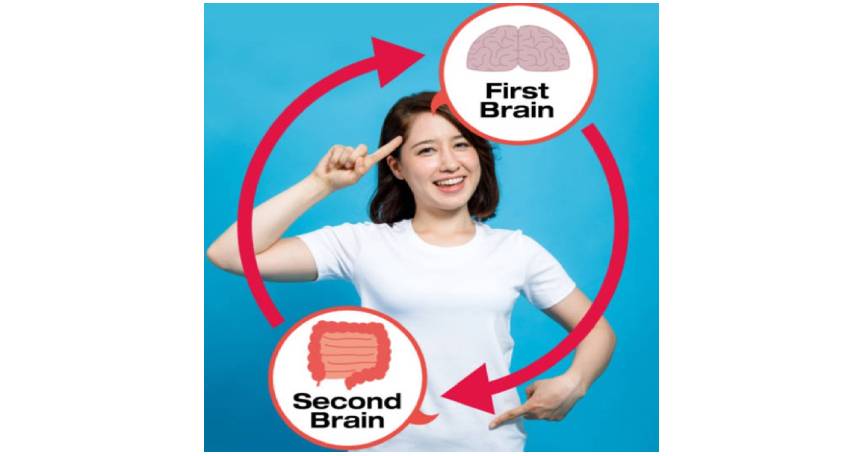Have you ever observed that having a stomach ache can make you feel sick? Or that stomach problems can result from stress and anxiety? This is a result of the close connection between your brain and gut. This connection, known to scientists as the gut-brain axis, describes how your digestive system affects your emotions, thoughts, and general mental health.
The gut is essential for the production of neurotransmitters that control mood and pleasure, such as dopamine and serotonin. Problems like stress, anxiety, and even depression can result from an imbalance in gut microbes. This blog will explore how gut health impacts your mood and how to maintain a healthy digestive system for a more content and healthy mind.
The impact of the gut-brain connection on mood
Through a network of signals connecting the central nervous system and the digestive system, the gut-brain axis facilitates continuous communication between the gut and the brain. This relationship affects mood, emotions, cognitive function and digestion.
Your brain works better when your gut is balanced and healthy, which elevates your mood and lowers stress levels. But an imbalanced gut microbiota can lead to stress reactions, inflammation, and mental health conditions including depression and anxiety.
Understanding the role of vagus nerve in the brain-gut connection
One important factor in this relationship is the vagus nerve, a long nerve that runs directly from the gut to the brain. By transmitting signals from the digestive system to the brain, this nerve helps control mood, digestion, and even immunological responses.
The brain receives favorable signals from a healthy gut microbiota, which encourages contentment and relaxation. But when the gut is upset or inflamed, the vagus nerve sends stress signals, which can lead to anxiety, sadness, and mood swings.
The role of balanced gut microbiome
The gut microbiome is made up of billions of bacteria that live in the gut. A healthy microbiome is necessary for:
- The production of mood-regulating neurotransmitters like serotonin depends on a healthy microbiota.
- Reducing inflammation can have an impact on how the brain functions.
- Improving the absorption of nutrients promotes mental clarity.
How does poor gut health affect your mood?
The following can result from an unbalanced gut—caused by poor diet, stress, antibiotics, or processed foods:
- Reduced serotonin production, which increases stress and anxiety.
- Mood swings and anxiety are caused by intestinal inflammation.
- Fatigue and mental fog because digestive problems limit the absorption of nutrients.
- Constipation and bloating are digestive problems that have an additional effect on mental health.
Diet and lifestyle tips for a healthy gut and better mood
- Eat probiotic-rich food: To increase beneficial gut flora, including probiotic fermented foods as a part of your daily diet.
- Stay hydrated: Maintaining enough hydration promotes detoxification and gut wellness.
- Limit processed food and sugar: These can cause intestinal imbalances and feed harmful
- Stress management: To promote gut-brain balance, do yoga, meditation, and deep breathing.
- Get enough sleep: Insufficient sleep impacts mood and mental clarity by disturbing gut flora.
Happy gut, happy mind, happy life
More than simply a digestive organ, your gut is a second brain that is vital to your mental health. A happy mind means a healthy gut, which enhances mood, lowers stress levels and promotes overall health.
The first step to feeling better and feeling happy is to take care of your gut. Make gut-healthy decisions by drinking plenty of water, taking probiotics, and managing stress.
